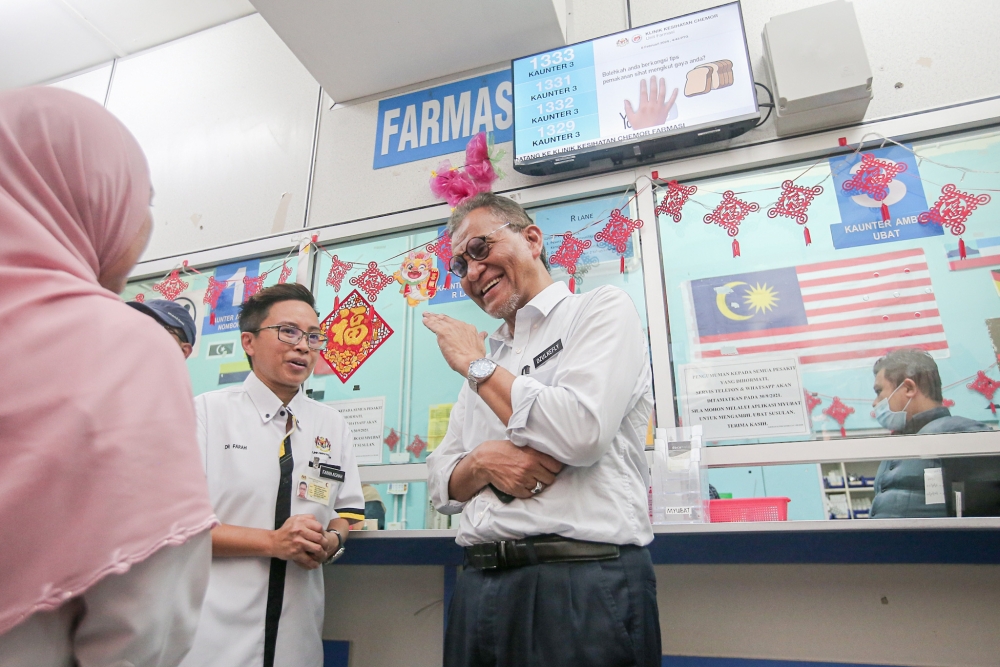BUTTERWORTH, Feb 8 — The government has allocated RM18.9 million this year for the digital transformation of 100 public health clinics nationwide, with a cloud-based digital management system (CCMS).
Health Minister Datuk Seri Dr. Dzulkefly Ahmad said the initiative includes Klinik Kesihatan Air Putih, Klinik Kesihatan Bayan Baru, Klinik Kesihatan Bukit Minyak, Klinik Kesihatan Jalan Perak, Klinik Kesihatan Kepala Batas, Klinik Kesihatan Seberang Jaya, Klinik Kesihatan Sungai Bakap, Klinik Kesihatan Sungai Dua, Klinik Kesihatan Tanjung Bungah, and Klinik Kesihatan Tasek Gelugor in Penang.
“This initiative is part of Budget 2025. The government will also introduce an electronic medical records system at Penang General Hospital and Seberang Jaya Hospital in 2026,” he said after officiating the Seberang Perai Utara Wellness Hub Open Day at Klinik Kesihatan Sungai Dua today.
He added that other hospitals in the state would follow suit, subject to allocations under the 13th Malaysia Plan.
The digital transformation through CCMS is expected to cut patient waiting times from three hours to just 30 minutes.
Meanwhile, Dr. Dzulkefly announced that there are currently 33 Wellness Hubs nationwide offering comprehensive healthcare services, including the mobile health initiative, Zoomers Wellness on Wheels (WoW@Zoomers).
In line with the national healthcare reform agenda, he said the Wellness Hubs facilitate the shift from a ‘sick care’ model to a more holistic ‘health care’ approach, focusing on prevention, promotion, and prediction to encourage Malaysians to be more proactive about their health.
“Data from 2020 to June 2024 shows that nearly one million clients have visited Wellness Hubs nationwide, including 20,000 from Seberang Perai Utara. Meanwhile, the IFitEr (I Fit and Eat Right) programme has recorded a 60 percent success rate in participants achieving weight loss,” he said.
He added that studies have shown the model increases awareness and reduces the burden of non-communicable diseases (NCD) by providing accessible healthcare services.
Dr. Dzulkefly also highlighted that the government bears an estimated RM64 billion in healthcare costs for NCDs, particularly diabetes, cardiovascular diseases, chronic respiratory conditions, and cancer.
Beyond serving as community health centres, Wellness Hubs also play a role in behaviour modification by providing guidance, motivation, and social support to help clients achieve better health outcomes.
Additionally, the hubs offer health literacy programmes, free health screenings, and counselling sessions, helping the community detect health risks early and take appropriate preventive measures.

